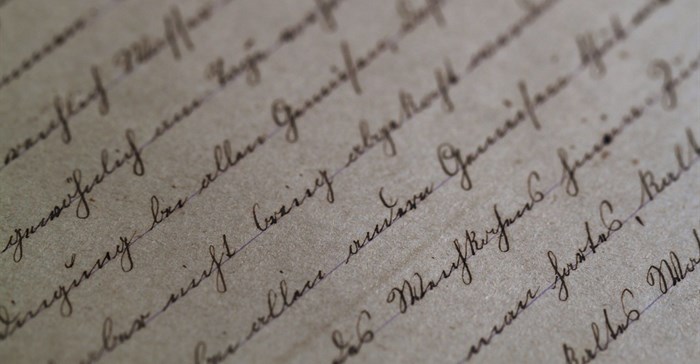TEKNAF, Bangladesh - For decades the Rohingya have been denied recognition in Myanmar but the persecuted minority is close to securing a crucial symbol of their identity - their own unique digital alphabet.

Image credit: Pixabay via
Pexels.
The language of the stateless Muslim people has been included in the planned upgrade to the Unicode Standard, the global coding system that turns written script into digital characters and numbers.
It would allow the Rohingya to write emails, send texts and post on social media in their own language – a major step for a people who had no written script until the 1980s.
Victims of violent oppression in Myanmar that has been likened to ethnic cleansing, many Rohingya face far more pressing concerns than searching Google or sending a tweet, and most lack not just the technology but the literacy to do so.
But experts say imparting the Rohingya a digital script of their own is hugely symbolic of the recognition and survival of the marginalised people, even if it is not adopted quickly.
"If a people do not have a written language of their own, it is easier to say that as an ethnic group you don't exist," said Mohammad Hanif, who developed the writing system for the Rohingya language in the 1980s.
"It is easier to repress them," the Rohingya madrassa teacher living in Bangladesh told AFP.
This is especially the case with the Rohingya, with Myanmar even refusing to use their name.
Myanmar refers to them as "Bengalis" instead, painting them as interlopers from Bangladesh even though many of them have lived in the country for generations.
Language is part of the issue
Experts say language is part of the issue, with Rohingya speaking a dialect of Bengali understood in Bangladesh's southeastern Chittagong region, but foreign to the Buddhist majority in Myanmar.
The minority group has been driven out of Myanmar's westernmost Rakhine state in waves of systematic violence, most recently in an army campaign that Doctors Without Borders say killed at least 6,700 Rohingya Muslims in its first month.
Nearly 650,000 Rohingya have arrived in Bangladesh since the military crackdown began in August, escaping arson, rape and murder in their homeland.
The Rohingya had no written script until Hanif – an Islamic scholar who fled Rakhine in an earlier surge of violence – began studying the nuances of the language.
Hanif said around 50 books have now been written using the script which is also taught in some faith schools catering to the Rohingya in Malaysia, Pakistan, Saudi Arabia and Canada.
Other attempts at developing a writing system had used Arabic, Urdu and English scripts, the latter known as "Rohingya-lish".
The Unicode Consortium
But "Hanifi Rohingya" may be the one to be encoded by the Unicode Consortium – a nonprofit that oversees the global standardisation of digital characters and numbers.
A representative for the US-based consortium told AFP by email that Hanifi Rohingya was one of the scripts being considered in the next version, but a final decision would be made in February.
If approved, it would allow the global Rohingya diaspora – including, eventually, the more than 800,000 refugees in Bangladesh – to also send messages through chat services like WhatsApp using their digital alphabet.
"(This) legitimises the struggle of the Rohingya language and its much-persecuted people," said Muhammad Noor, a software engineer who built a computer typeface for "Hanifi Rohingya" compatible with word processing, but not online usage.
Translators Without Borders, a nonprofit providing translation services for charities in crisis zones, said the importance of taking the Rohingya language into the digital realm could not be overstated.
"It is revolutionary," the charity's Rebecca Petras told AFP in Cox's Bazar, where the Rohingya camps are located.
"In order for the language to survive, a script is necessary. This would strengthen the language and go a long way to preserve it."
Enormous hurdles
But the denial of education to most Rohingya in Myanmar means many cannot read or write the script, posing enormous hurdles for its survival in cyberspace.
The minority of Rohingya afforded an education in Rakhine were instructed in Burmese, and even religious schools were not permitted to teach the written Rohingya script.
Those seeking to save it from obsolescence are looking to the next generation in makeshift schools across Bangladesh's teeming refugee camps.
More than half the new arrivals since August are children, and experts say unless they learn the written Rohingya script, it will wither away.
Rohingya groups are pushing for its inclusion in schools, but many children are quickly adopting Bengali instead, finding the local language more useful than their mother tongue.
Schools have also focused on Burmese and English, throwing up another roadblock for those fighting for the language's survival.
"The UN schools are our only hope to introduce the written script to half a million children in the camps. But there is no attempt to teach Rohingya language, which is unfair," said Rohingya activist Rafique bin Habib.
Source: AFP via I-Net Bridge.









